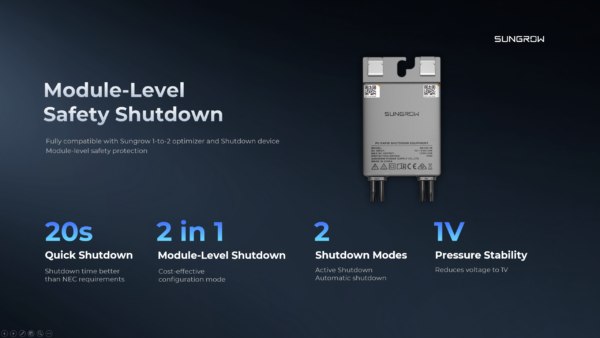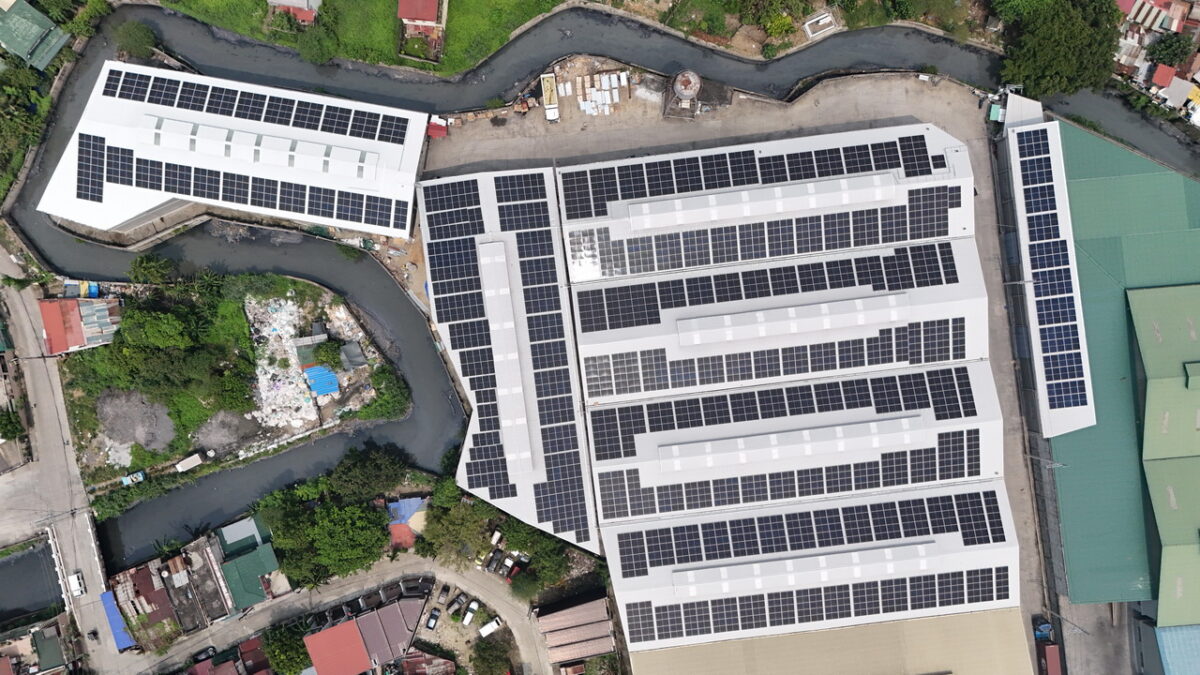As the global solar photovoltaic industry advances at an unprecedented pace, propelling installed capacities into the terawatt era, safety concerns have emerged as a critical challenge. While solar energy offers humanity an unparalleled opportunity to harness clean, sustainable power, incidents of PV-related fires have occasionally marred their progress.
Recent high-profile cases include a July 2023 fire in Switzerland that engulfed an industrial building with a PV system, an August blaze at an Italian rooftop poultry farm that tragically killed over 20,000 hens, and a February 2024 fire in the UK that caused significant losses at a warehouse storing £70 million worth of goods. These incidents have underscored the urgency of enhancing PV system safety, as they not only result in economic damage but also heighten local community concerns and potentially hinder future solar development.
The Hidden Risk: High-Voltage Devices on Rooftop
Among the various applications of PV energy are buildings equipped with solar power systems, which can present significant hazards in the event of a fire. Surprisingly, simply turning off the solar inverter does not always deactivate the system. In certain inverter configurations, wires and circuits can remain energized even after the inverter is switched off, increasing the risk of electric shock to firefighters working on the roof or in the attic. Recently, much misinformation regarding PV systems and firefighter safety has circulated online, with some sources even suggesting the dangerous advice to “let it burn” when solar panels are detected on a roof.
Global Standards Elevate Safety for Solar PV Systems with Advanced Rapid Shutdown Requirements
The 2017 US National Electrical Code (NEC) introduced module-level rapid shutdown for solar panels, a crucial step in enhancing safety. It tightened these standards, requiring rapid voltage reduction to meet the voltage of the conductors below 30V outside the array boundary and 80V within the array boundary within 30 seconds. The 2020 NEC further strengthened safety with the introduction of “PV Hazard Control Systems,” proactively mitigating fire risks and ensuring safe operating conditions. Globally, leading PV markets are adopting stringent standards to mitigate high-voltage DC arc risks. Key examples include Brazil (NT-44-2023), Thailand (EIT 022013-22), the Philippines (PEC 690.2).
These evolving regulations demand advanced performance from module-level rapid shutdown systems, reflecting a unified global effort to enhance PV system safety and reliability, setting a strong foundation for secure solar energy deployment worldwide.
Sungrow's Transformative Solution: SR20D-M Rapid Shutdown Equipment
Sungrow, a global leader in PV inverters and energy storage solutions, has introduced the SR20D-M Rapid Shutdown Equipment, a state-of-the-art innovation that redefines safety standards with intuitive installation and advanced management capabilities. And this equipment brings superior experience in Safety, Reliability, Flexibility and Maintenance.

Safety: 20-Second Rapid Shutdown
In emergencies, the SR20D-M ensures high-voltage levels on rooftops are reduced to a safe voltage below 30V within 20 seconds, effectively mitigating risks to personnel and property while enhancing fire safety. The device adheres to UL1741/UL3741 standards, providing robust protection for firefighting operations. Firefighters can utilize rapid shutdown solutions to quickly de-energize solar panel systems, ensuring safety should they need to access the roof during an emergency.
Reliability: Patented FHC Low-Temperature Bypass
There has been a growing chorus of complaints regarding the poor quality of third-party rapid shutdown devices in the market. Equipped with Fault Heat Control (FHC), the SR20D-M autonomously enters bypass mode with low heat dissipation in case of module malfunctions, or SR20D-M device faults to keep stability and long-term running. In such scenarios, it transitions into bypass mode, isolating the affected module while maintaining uninterrupted operation of the remaining modules in the string.
Flexibility: Streamlined PLC Communication for Simplified Installation
The SR20D-M features an optimized system design that eliminates the need for additional communication cables, hosts, or boxes. This reduction of internal components enhances system reliability and extends its operational lifespan, while significantly simplifying the installation process. Additionally, the system automatically assigns individual PLC frequency points for each inverter, eliminating cross-talk issues.
Maintenance: Module-Level Monitoring for Effortless Operations and Maintenance
Supporting module-level management, the SR20D-M provides real-time monitoring and fault positioning, enabling precise identification of module faults. With its ability to support currents up to 20A, it seamlessly integrates with mainstream module technologies, ensuring compatibility and ease of maintenance.
A Visionary Step Toward Safer Solar Futures
Sungrow’s, “One Brand, One Solution”, inverter and SR20D-M not only raises the bar for PV system safety but also embodies the company’s commitment to innovation and sustainability. The whole solution provides AFCI and Rapid Shutdown, dual level safety protection, providing unparalleled reliability, safety and operational synergy.
The SR20D-M stands as a transformative solution that redefines how PV systems are installed, operated, and maintained. It promises to make every solar module more safety with simplified installation and maintenance throughout its lifecycle, cementing Sungrow’s position as a trailblazer in the renewable energy industry.

A newly completed C&I distributed PV farm in Quezon District, Metro Manila, Philippines, makes it Philippine’s first MW-level rapid shutdown project by installing Sungrow’s SR20D-M rapid shutdown equipment which was chosen to mitigate fire risks from high voltage arcing beneath the plant’s warehouse and factory. By the end of 2024, Sungrow had shipped 100,000 units of SR20D-M, with an increasing number of customers opting for its rapid shutdown solution.

